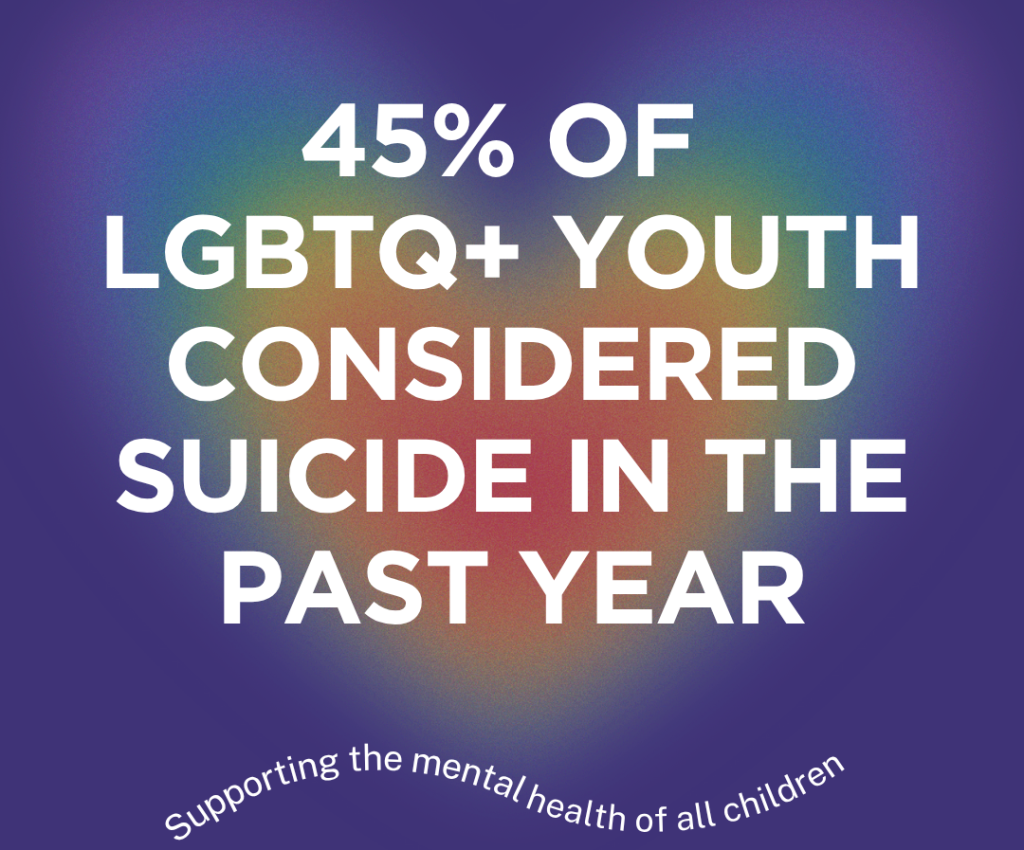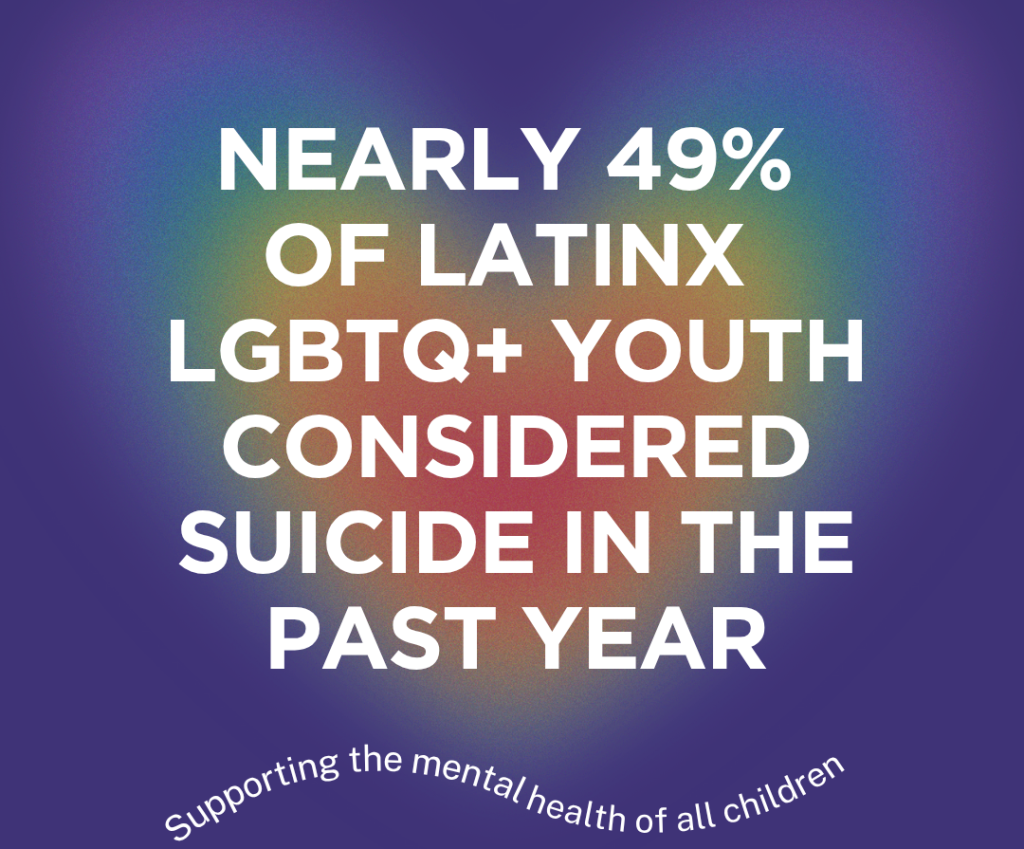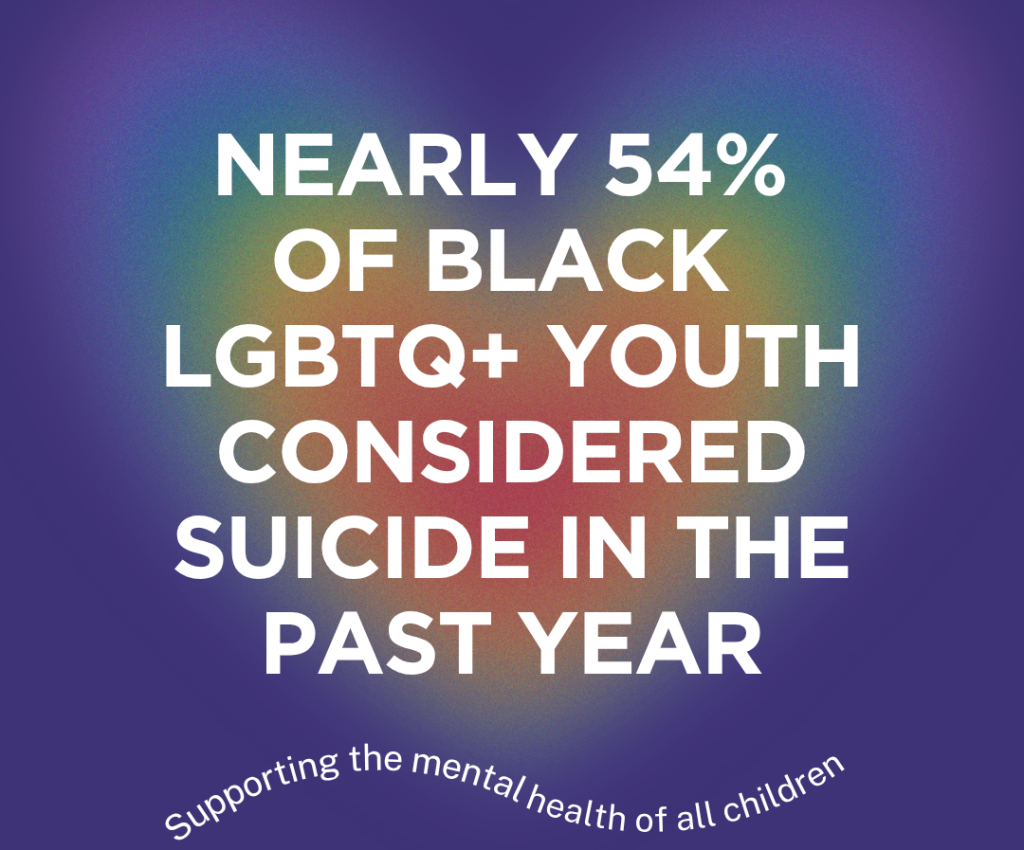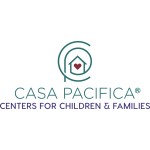
Why Pride Month matters for LGBTQ youth mental health is clear: support and visibility can be life-saving for young people facing stigma and isolation.
Pride Month is more than just a celebration of identity and community—it’s a crucial time to shine a light on the mental health challenges faced by LGBTQ+ individuals, especially youth.
Studies reveal that LGBTQ+ youth are at a significantly higher risk for mental health issues including depression, anxiety and suicidal thoughts, largely due to experiences of stigma, discrimination, and social isolation. According to The Trevor Project’s 2023 National Survey on LGBTQ+ Youth Mental Health, nearly 45% of LGBTQ+ youth seriously considered suicide in the past year, highlighting the urgent need for awareness and support.

Disparities Among Black and Latinx LGBTQ+ Youth
The challenges are even more pronounced for LGBTQ+ youth of color. Black and Latinx LGBTQ+ youth report disproportionately poorer mental health outcomes compared to their white peers. For instance, data from the Human Rights Campaign reveals that Black LGBTQ+ youth are more likely to experience higher rates of homelessness, discrimination, and mental health struggles. And nearly 54% of Black LGBTQ+ youth and 49% of Latinx LGBTQ+ youth reported seriously considering suicide in the past year, underscoring the compounded impact of racial and sexual identity stressors.


The Importance of Visibility and Support
Visibility and acceptance during Pride Month play a vital role in fostering resilience and hope. When LGBTQ+ youth see themselves represented and supported in their communities, it reduces feelings of isolation and promotes better mental health outcomes.
Pride Month also serves as a call to action. It encourages families, schools, and communities to educate themselves, stand up against discrimination, and create safe spaces where LGBTQ+ youth can thrive. Resources like The Trevor Project offer 24/7 crisis intervention and support, while local programs such as Casa Pacifica’s SAFTY (Safe Alternative for Treating Youth) mobile crisis response program provides quick and accessible services to youth in Santa Barbara County who are experiencing a mental health crisis.
Tips for Families and Educators Supporting LGBTQ+ Youth Mental Health
Supporting LGBTQ+ youth requires awareness, empathy, and action. Here are some practical steps families and educators can take to foster safe, affirming environments:
- Use inclusive language
Respect a young person’s name and pronouns, and avoid making assumptions about their identity. A small shift in language shows big respect—and helps build trust. - Model acceptance
Speak up against stereotypes or hurtful jokes. Display a safe space sticker, don a rainbow pin or talk positively about LGBTQ+ people. These actions signal that you’re a safe and supportive adult. - Start small with learning
You don’t need to be an expert—just open to learning. Visit trusted sites like The Trevor Project or PFLAG for beginner-friendly guides on gender, sexuality, and mental health. - Check in during everyday moments
Ask open-ended questions during a car ride, over lunch or while walking the dog. Consistent, low-pressure check-ins can mean more than one big conversation. - Watch for warning signs
Changes in mood, social withdrawal, or sudden drops in school performance could be signs a young person is struggling. If something feels off, reach out with care—and connect them to help if needed. - Be a safe place in words and actions
Let your youth know, “You can always talk to me.” Support doesn’t require all the right answers—just a listening ear and unconditional love.
By understanding the real challenges faced by LGBTQ+ youth, we can all contribute to creating a world where every young person feels seen, supported, and valued—not just during Pride Month, but every day of the year.
If you’re interested in supporting Casa Pacifica’s life-changing mission, donate now!
About Casa Pacifica
Headquartered in Camarillo, California, Casa Pacifica is the largest nonprofit provider of children’s and adolescent mental health services in Ventura and Santa Barbara Counties. Our nationally accredited programs include residential treatment, therapeutic behavioral services, wraparound care, transitional youth services, school-based mental health services and foster care support, along with a fully certified, diploma-granting Non-Public School serving grades K–12. Casa Pacifica specializes in treating youth facing complex mental health challenges such as anxiety, depression, and emotional dysregulation. Since 1994, Casa Pacifica has helped transform the lives of nearly 54,600 at-risk children and youth.
For more information or to get involved, email info@casapacifica.org or call 805-366-4040.

